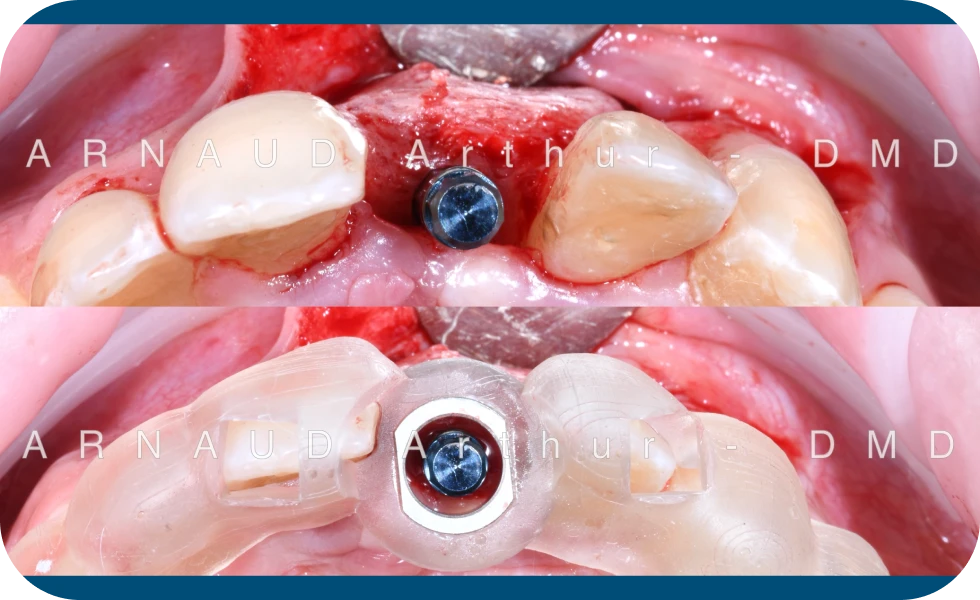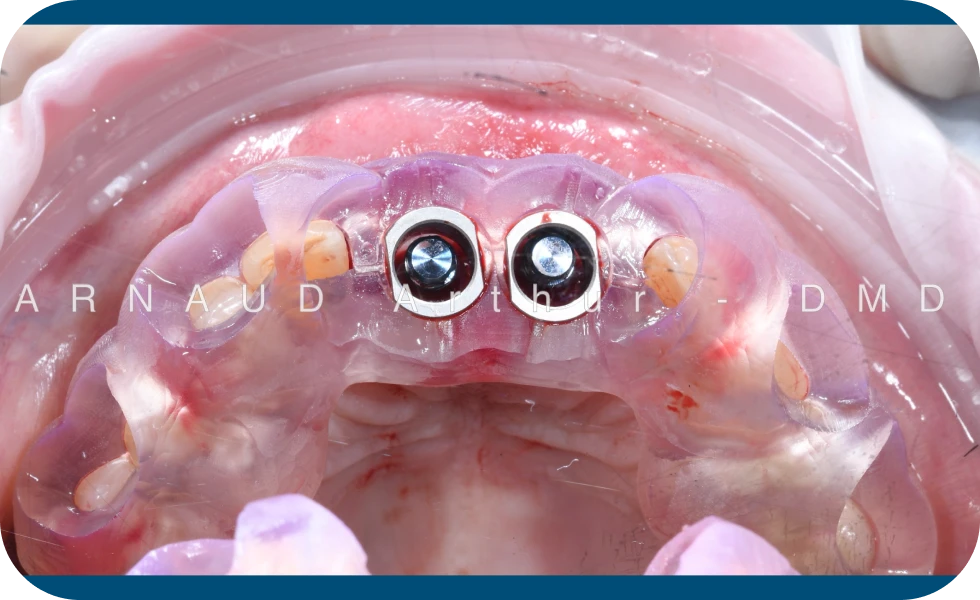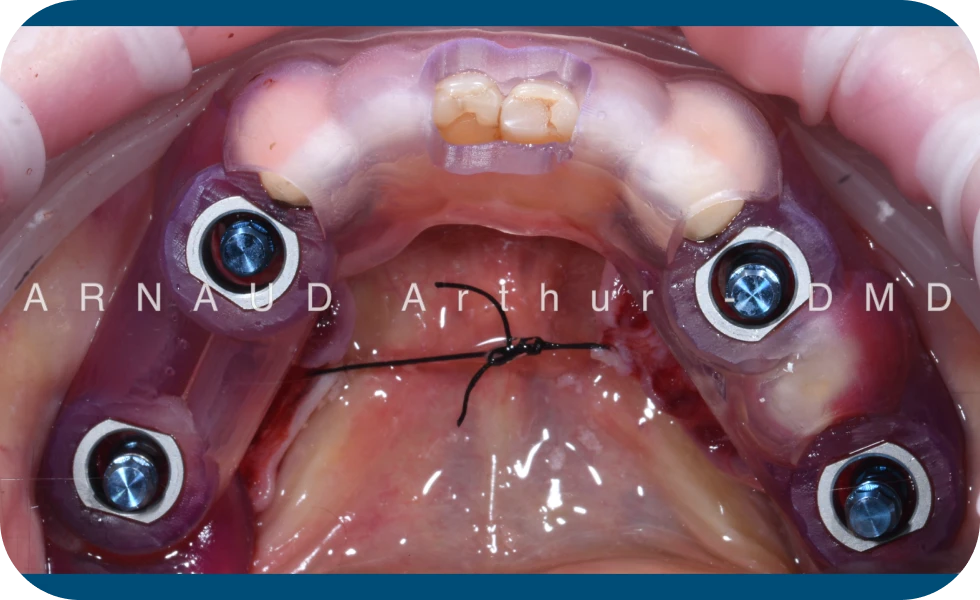Single implant
A dental implant is a titanium alloy screw surgically implanted into the jawbone to replace an entire tooth, including the root. The procedure is quick, minimally invasive, and well tolerated. For example, a single dental implant can be inserted in 30 minutes.
Components of a dental implant
Implant: This is the titanium screw implanted in the jawbone.
Implant abutment: This is the second component of the dental implant and is attached to the implant once it has fused with the jawbone. The abutment protrudes above the gum line and supports the implant restoration.
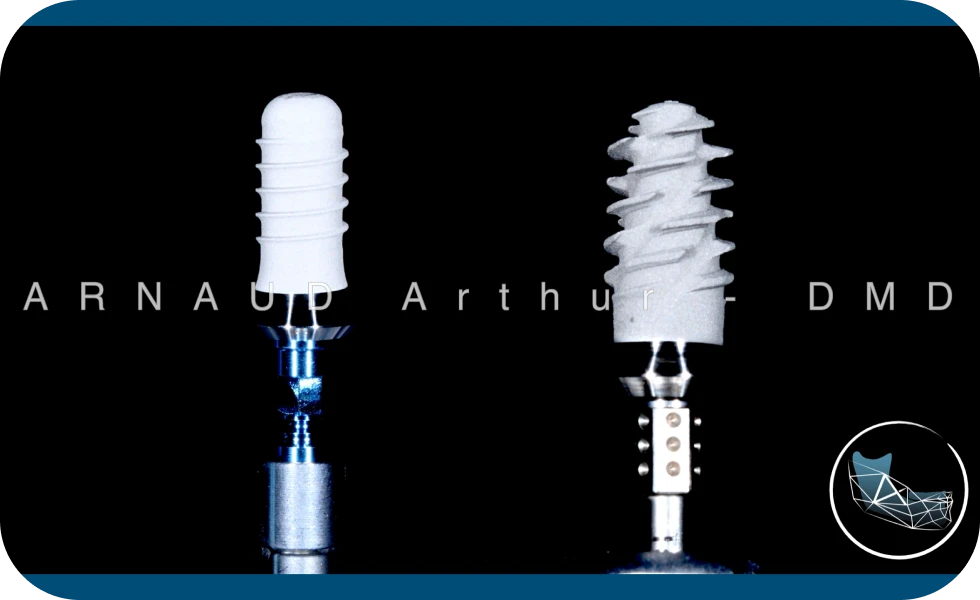
Implant restoration: This is the third and final component of the dental implant and is the visible part of the implant that replaces the missing tooth. Implant restorations can be crowns, bridges, or dentures.
Dental implants can support crowns and implant bridges or hold dentures in place for greater comfort.
Implant crowns and bridges are not removable and are screwed onto the abutments. Implant prostheses are removable and clip onto special attachments on the implants.
Qui peut recevoir un implant dentaire ?
Most patients can benefit from implant treatment, including those with naturally missing teeth or who have lost teeth due to trauma or disease. Certain general criteria must be met for successful implant treatment. Five important points are highlighted below.
Over 20 years of age
You must be over twenty, as your teeth and jaws must have finished growing and developing. Children with congenitally missing teeth will have to wait until this age before they can benefit from implant treatment.
Good general health
Your general state of health should be reasonable, and you should not have any major medical problems that could have an impact on healing after implant surgery. For example, if you suffer from diabetes and have difficulty maintaining your blood sugar levels, they should be controlled before implant surgery. Certain health problems can impact the immune system, affect healing, affect implant success and increase the risk of complications.
No signs of active gum disease
Gum disease (periodontal disease) is a common cause of tooth loss. If you suffer from this disease, it must be controlled or eradicated before implant treatment. Periodontal disease is caused by a bacterial infection that, if left unchecked, could lead to infection of the gums around the implants, causing them to loosen.
Adequate bone volume
When implants are inserted into the jaw, they require a specific amount of strong, healthy bone for successful osseointegration. Without adequate bone to fuse with, the risk of implant failure increases. The health of your jaw is carefully assessed during your consultation. The amount and density of bone available for implant placement will be analyzed by radiological examination.
In the case of insufficient bone, we recommend bone grafting, a surgical procedure designed to reconstitute bone prior to implant placement.
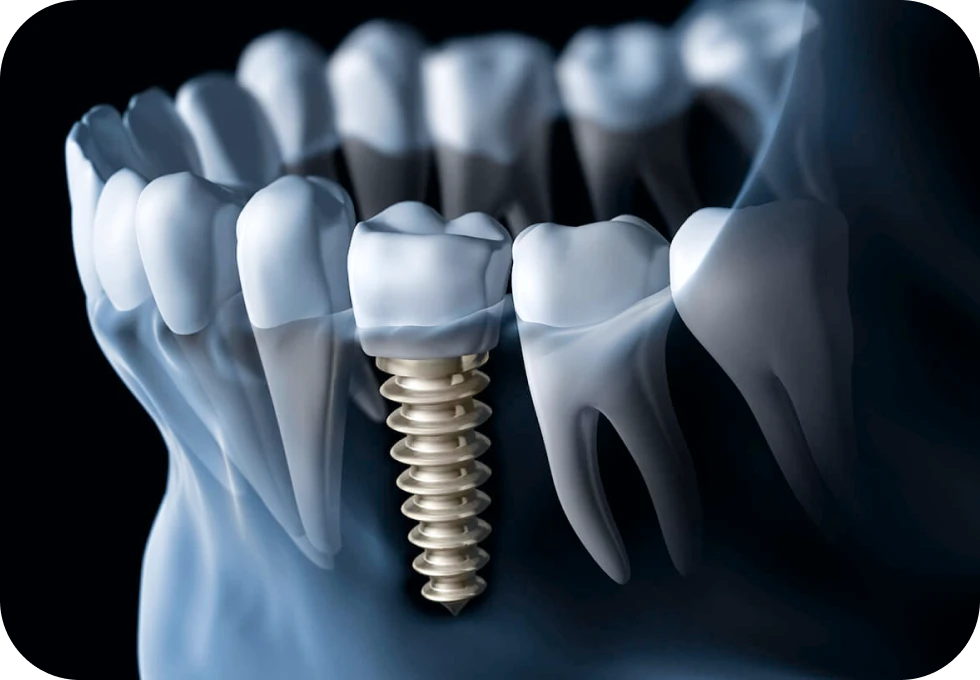
Stop smoking or using tobacco products
If you smoke, you are strongly advised to stop before treatment and at least during the recovery period after surgery. We’d prefer it if you quit for good. Smoking interferes with healing after dental implant surgery, so the risk of implant failure increases considerably. Nicotine constricts blood vessels in the gums, making it harder for your body to send essential nutrients to the gums. Even after implants have healed, smoking can increase the risk of subsequent implant failure due to infection and inflammation of the gums.
Am I too old for dental implants?
It’s a frequently asked question, and the answer is certainly no. Many people over the age of 80 or even 90 have successfully received dental implants. Dental implants can significantly improve your quality of life, even when you’re older. On the contrary, eating well can improve your physical condition, avoid deficiencies and give you better overall health.
We carefully assess each individual’s suitability for dental implant treatment. Your general and dental health is far more important than your age.
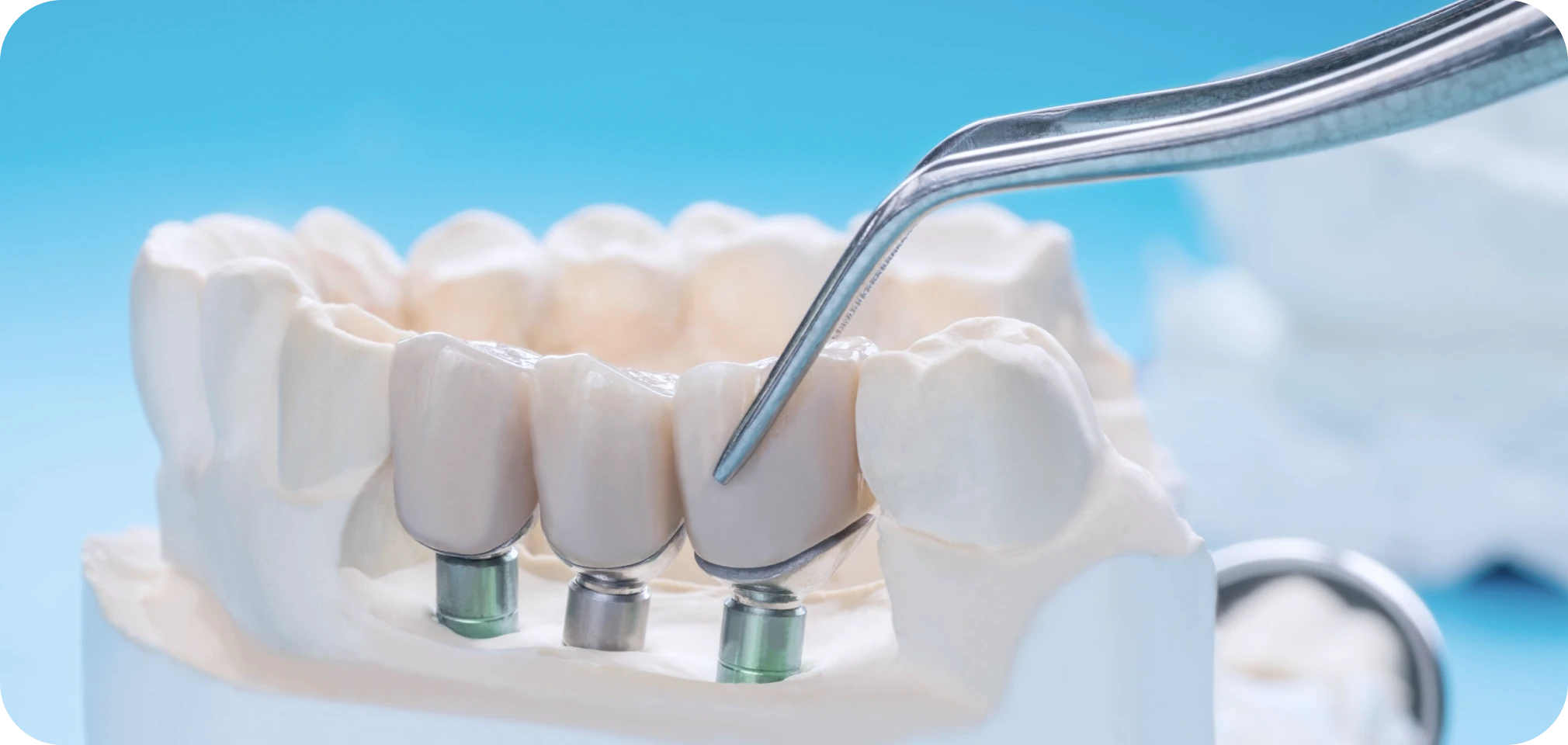
Are dental implants safe?
Yes, dental implant treatment is extremely safe when properly planned. Dental implants have been widely used around the world for several decades, and their longevity and success have been extensively studied.
Dr. Arnaud uses computer-guided surgery to insert dental implants optimally, avoiding important structures such as nerves and blood vessels. Computer-guided surgery also makes treatment faster and smoother, which can lead to a quicker recovery.
What can I do if I have dental fears or phobias? Can I still have implant treatment?
The first consultation is used to organize the surgery, and the level of anxiety will be discussed with the surgeon in order to define the best anesthesia option.
Types of anesthesia for treatments :
- Local anaesthesia: makes the area completely painless, so you’ll be awake during the procedure, but without any pain. Medicated oral sedation is available to reduce mild anxiety.
- General anaesthesia: This type of sedation is administered via an IV line by an anaesthetist (FMH). You will be completely asleep and intubated during your procedure, and will wake up once it is over.
What type of sedation is right for me?
The type of sedation that’s right for you depends on the severity of your surgical anxiety and the type of procedures to be performed. If you suffer from mild to moderate anxiety, oral sedation may be sufficient. If you suffer from severe anxiety or need to undergo a more invasive procedure, general anesthesia may be a better option.
